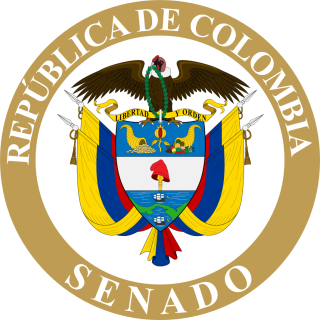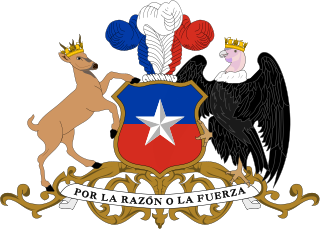
Parliamentary elections were held in Chile on 5 March 1961. The Radical Party remained the largest party in the Chamber of Deputies and also became the largest party in the Senate.
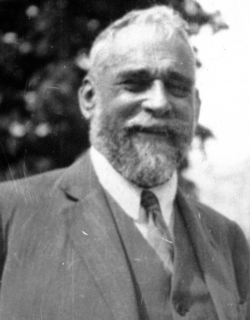
General elections were held in Romania in December 1937. The Chamber of Deputies was elected on 20 December, whilst the Senate was elected in three stages on 22, 28 and 30 December. The National Liberal Party remained the largest party, winning 152 of the 387 seats in the Chamber of Deputies and 97 of the 112 seats in the Senate elected by universal male vote, although it lost its majority in the Chamber. The party's unexpectedly poor showing meant they could not form a coalition with either their arch-rivals the National Peasants' Party or with the Iron Guard's Everything for the Country Party, King Carol II invited the poet Octavian Goga to form a government, despite the fact that his National Christian Party finished fourth and had an avowedly anti-Semitic platform.

General elections were held in Belgium on 20 November 1921. The result was a victory for the Catholic Party, which won 70 of the 186 seats in the Chamber of Representatives. Voter turnout was 91.1% in the Chamber election and 91.0% in the Senate election.

Parliamentary elections were held in Colombia on 14 March 1982 to elect the Senate and Chamber of Representatives. The result was a victory for the Liberal Party, which won 104 of the 199 Chamber seats and 55 of the 114 Senate seats.
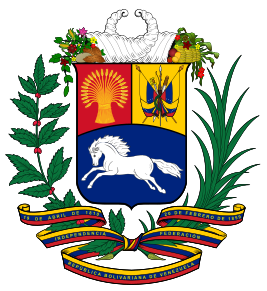
Parliamentary elections were held in Venezuela on 8 November 1998. Democratic Action won a plurality of seats, winning 61 of the 207 seats in the Chamber of Deputies and 21 of the 54 seats in the Senate. Voter turnout was 54.5% in the Senate elections and 52.7% in the Chamber elections.

Full general elections were held in Belgium on 14 October 1894, with run-off elections held on 21 October 1894.
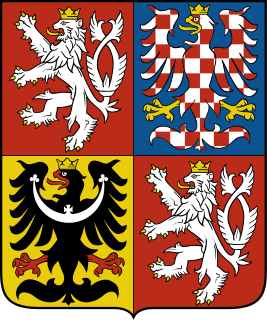
Senate elections for a third of chamber were held in the Czech Republic on 13 and 14 November 1998 with a second round on 20 and 21 November.
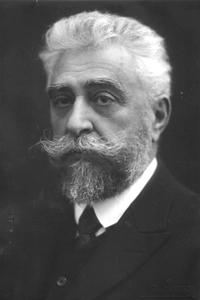
General elections were held in Romania between 1 and 3 March 1922. In the first stage between 1 and 3 March, seats in the Senate were elected. In the second stage between 5 and 7 March the Chamber of Deputies was elected, and in the third and final stage from 9 to 11 March, additional Senate seats were elected. The result was a victory for the governing National Liberal Party, which won 222 of the 372 seats in the Chamber of Deputies and 111 of the 148 seats in the Senate.
General elections were held in Romania in May and June 1926. The Chamber of Deputies was elected on 25 May, whilst the Senate was elected in two stages in May and 10 June. The result was a victory for the governing People's Party, which, together with the allied Romanian National Party–Goldiș, Magyar Party and German Party, won 292 of the 387 seats in the Chamber of Deputies and 107 of the 115 seats in the Senate elected through universal male vote. With some exceptions, the Peasants' Party and the main branch of the National Party ran on common lists under the name of National Peasant Bloc.
General elections were held in Romania in June 1927. The Chamber of Deputies was elected on 7 June, whilst the Senate was elected in three stages on 10, 12 and 14 June. The result was a victory for the governing National Liberal Party, which won 318 of the 387 seats in the Chamber of Deputies and 92 of the 113 seats in the Senate elected through universal male vote.

General elections were held in Romania in December 1928. The Chamber of Deputies was elected on 12 December, whilst the Senate was elected in three stages on 15, 17 and 19 December. The result was a victory for the governing National Peasants' Party-led alliance, which won 348 of the 387 seats in the Chamber of Deputies and 105 of the 110 seats in the Senate elected through universal male vote. Of the 348 Chamber seats won by the alliance, the National Peasants' Party won 326, the Social Democratic Party won 9, the German Party won 8, the Hungarian People's Party won 2 and three were won by Jewish candidates. It is generally regarded as the freest election ever held in Romania until the 1990s.

General elections were held in Romania in July 1932. The Chamber of Deputies was elected on 17 July, whilst the Senate was elected in three stages on 20, 24 and 26 July. The result was a victory for the National Peasants' Party-German Party alliance, which won 274 of the 387 seats in the Chamber of Deputies and 104 of the 113 seats in the Senate elected through universal male vote. Of the 274 Chamber seats, 265 were taken by the National Peasant's Party and nine by the German Party.

General elections were held in Romania in December 1933, the third in three years. The Chamber of Deputies was elected on 20 December, whilst the Senate was elected in three stages on 22, 28 and 29 December. The result was a victory for the governing National Liberal Party, which won 300 of the 387 seats in the Chamber of Deputies and 105 of the 108 seats in the Senate elected through universal male vote.

General elections were held in Romania in June 1939. The Chamber of Deputies was elected on 1 June, whilst the Senate was elected a day later. They were the first since the introduction of the royal dictatorship of King Carol II under the 1938 constitution. Voters were presented with a single list from the National Renaissance Front, which had been the only legally permitted party in Romania since December.

Parliamentary elections were held in Colombia on 16 March 1958 to elect the Senate and Chamber of Representatives. They were the first elections held under the National Front agreement, which only allowed the Conservative Party and the Liberal Party to contest the elections, and allocated 50% of the seats in both houses to each party. As a result, the main contest at the elections was between factions within each party.

Parliamentary elections were held in Colombia on 9 March 1986 to elect the Senate and Chamber of Representatives. The Liberal Party remained the largest party, but lost its majority in the Chamber.

Parliamentary elections were held in Colombia on 27 October 1991 to elect the Senate and Chamber of Representatives. The result was a victory for the Liberal Party, which won 87 of the 161 seats in the Chamber and 56 of the 102 seats in the Senate.

Parliamentary elections were held in Chile on 2 March 1941. The Radical Party emerged as the largest party in the Chamber of Deputies and the Senate.

Parliamentary elections were held in Chile on 6 March 1949. Although the Social Christian Conservative Party received the most votes in the Senate elections, the Liberal Party won the most seats, whilst the Radical Party remained the largest party in the Chamber of Deputies.

Parliamentary elections were held in Chile on 1 March 1953. The Agrarian Labor Party emerged as the largest party in the Chamber of Deputies, whilst the Liberal Party won the most seats in the Senate.


